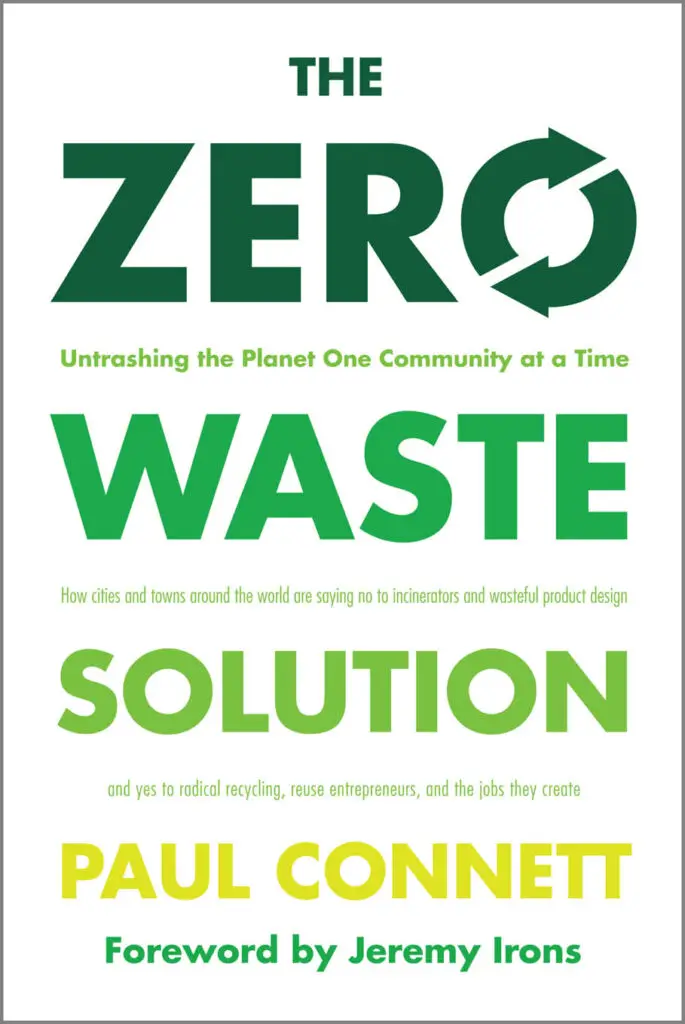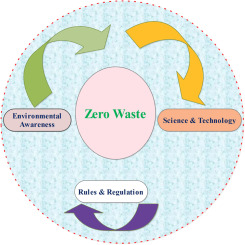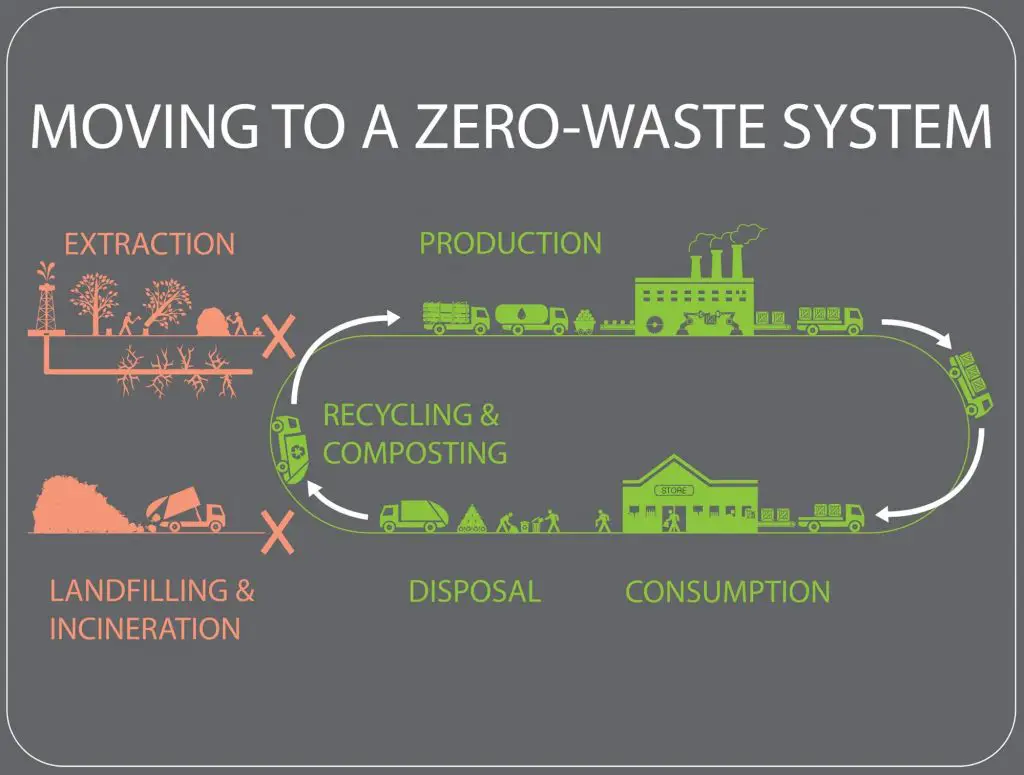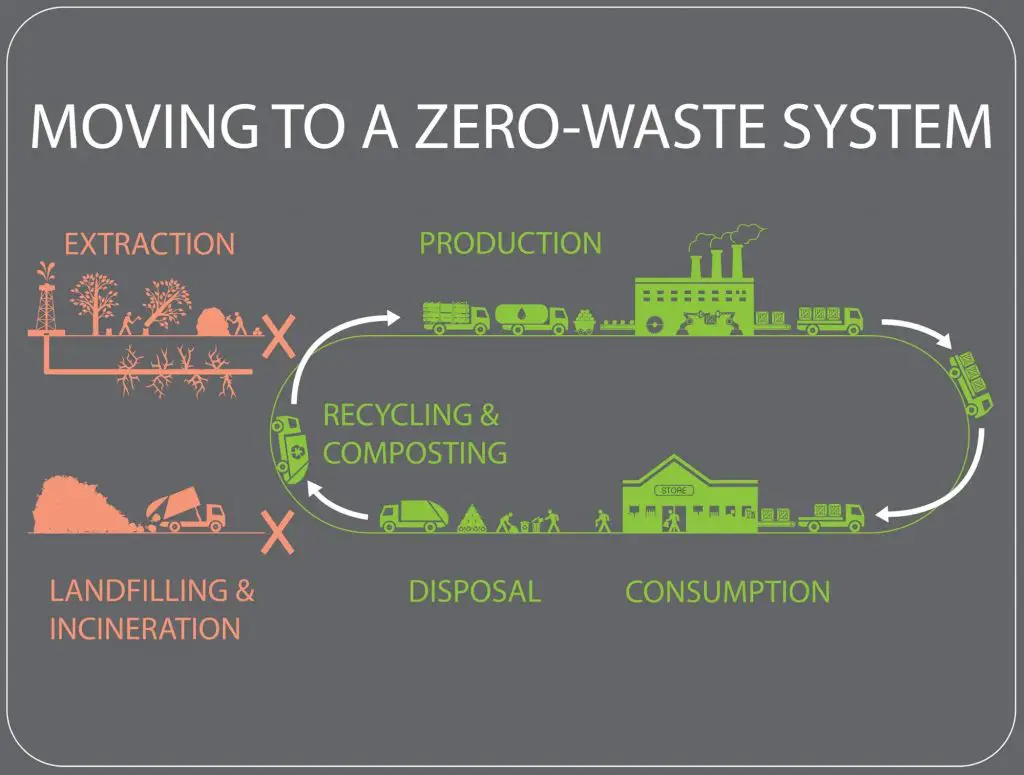Have you ever wondered if there’s a way to live in a more sustainable and environmentally friendly manner without breaking the bank? Well, I’ve got some exciting news for you! Zero-waste living is gaining popularity as a frugal lifestyle choice that not only benefits the planet but also helps you save money. In this article, we’ll delve into the world of zero-waste living and explore how it can be a sustainable solution for your finances and the planet.
Zero-waste living is all about reducing your waste by minimizing your consumption and finding alternative solutions to common everyday items. By adopting this lifestyle, you not only reduce your environmental impact but also reap the financial rewards. From simple changes like using reusable bags and water bottles to more significant shifts like composting food scraps and making homemade cleaning products, there are countless ways to incorporate zero-waste practices into your daily life.
Not only does zero-waste living help you save money by cutting down on your expenses for disposable items, but it also encourages a more mindful and intentional approach to consumption. By being more conscious of our purchases and focusing on quality over quantity, we can make smarter financial decisions. Additionally, zero-waste living often leads to adopting a minimalist mindset, which can further reduce our desire for material possessions and ultimately save us even more money in the long run.
In the upcoming article, we’ll dive deeper into the financial benefits of zero-waste living and explore practical tips and strategies for implementing this lifestyle. Whether you’re looking to save some extra cash or minimize your ecological footprint, zero-waste living offers a win-win solution for both your wallet and the planet. So, stay tuned and get ready to discover how you can live a more sustainable and frugal life starting today!
1. The Benefits of Zero-Waste Living
Living a zero-waste lifestyle not only benefits the environment but also has a positive impact on your finances. By reducing waste and adopting sustainable practices, you can significantly decrease your expenses and contribute to a greener planet. In this article, I will share practical tips and insights on how to embrace zero-waste living and reap the financial rewards while making a positive difference.
Reducing Expenses through Waste Reduction
One of the main advantages of zero-waste living is the potential for substantial cost savings. By minimizing waste, you can greatly reduce your expenses on everyday items. For example, cutting down on single-use plastics means you won’t have to constantly buy disposable products like water bottles and shopping bags. Investing in reusable alternatives may seem like a minor upfront cost, but in the long run, it can save you a significant amount of money.
Environmental Impact of Zero-Waste Lifestyle
Apart from the financial benefits, zero-waste living also plays a crucial role in protecting the environment. By embracing a minimalist approach and mindful consumption habits, we can reduce the demand for resources and decrease pollution. Our planet is facing numerous environmental challenges, such as climate change and plastic pollution, and every individual’s effort in reducing waste is essential for a sustainable future.
2. Practical Tips for Zero-Waste Living
Adopting a Minimalist Approach
Embracing a minimalist lifestyle is the foundation of zero-waste living. By decluttering our lives and simplifying our possessions, we can avoid excessive consumption and minimize waste. Start by evaluating your belongings and getting rid of items that no longer serve a purpose or bring you joy. Focus on purchasing only what you truly need and prioritize quality over quantity.
Reducing Single-Use Plastics
Single-use plastics are one of the biggest contributors to pollution and waste. By making a conscious effort to reduce them in our daily lives, we can make a significant impact. Always carry reusable items such as water bottles, coffee cups, and shopping bags. Opt for glass or stainless steel containers for storing food instead of disposable plastic containers. Choose products with minimal packaging and support businesses that offer plastic-free alternatives.
Composting and Recycling
Composting is an effective way to divert organic waste from landfills and create nutrient-rich soil for your garden. Set up a composting system in your backyard or consider joining a community composting program if you don’t have access to outdoor space. Additionally, recycling properly is crucial to ensure waste is processed correctly and turned into new materials. Familiarize yourself with your local recycling guidelines and make a conscious effort to recycle all recyclable materials.
Mindful Consumption Habits
Being mindful of our consumption habits is key to reducing waste. Before making a purchase, ask yourself if you truly need the item and if it aligns with your values. Consider investing in high-quality, durable products that will last longer and reduce the need for frequent replacements. Buy in bulk whenever possible to minimize packaging waste, and try to support local businesses and sustainable brands that prioritize waste reduction.
3. Financial Savings through Zero-Waste Living
Reducing Packaging Costs
One of the hidden costs associated with consumerism is packaging. By adopting a zero-waste lifestyle, you can significantly reduce packaging waste and the related expenses. Purchasing items in bulk or at refill stations allows you to bring your own containers and avoid excessive packaging. Additionally, opting for products with minimal or eco-friendly packaging can help you save money in the long run.
Eliminating Impulse Buying
Impulse buying can quickly drain your finances and generate unnecessary waste. By practicing mindful consumption and focusing on your needs rather than wants, you can eliminate impulsive purchases. Take the time to consider if an item is truly necessary and if it aligns with your values and long-term goals. This will not only save you money but also minimize the amount of waste generated from impulse buys.
Sustainable DIY Projects for Savings
Zero-waste living often goes hand in hand with embracing a do-it-yourself approach. By making your own products and reusing items, you can save a significant amount of money. For example, instead of buying cleaning products, you can create your own using simple ingredients like vinegar and baking soda. Similarly, instead of purchasing new furniture, consider upcycling or repurposing items to give them a new life. These sustainable DIY projects not only save money but also reduce waste and promote creativity.
4. Zero-Waste Grocery Shopping
Bulk Buying and Refill Stations
One of the key strategies for reducing waste in the kitchen is to embrace bulk buying and refill stations. Purchasing items in bulk allows you to avoid excessive packaging and save money in the process. Look for stores that offer a wide selection of bulk goods, such as grains, nuts, and spices, and bring your own containers to fill them up. Refill stations for household products like cleaning supplies and personal care items are also becoming increasingly popular and offer a zero-waste alternative to single-use packaging.
Meal Planning and Batch Cooking
Meal planning and batch cooking are essential tools for zero-waste living and financial savings. By planning your meals in advance and cooking larger quantities, you can minimize food waste and save both time and money. Prepare a weekly meal plan and create a shopping list based on the ingredients you need. This helps to avoid overbuying and ensures that you use up all the ingredients, reducing food waste in the process.
Shopping Locally and Seasonally
Supporting local farmers and choosing seasonal produce not only benefits your health but also reduces waste and supports the local economy. Seasonal fruits and vegetables are often fresher, tastier, and more affordable than out-of-season produce that needs to be transported long distances. Shopping at farmers markets or joining a community-supported agriculture (CSA) program allows you to directly connect with local producers and reduce the carbon footprint associated with food transportation.

5. Sustainable Fashion and Zero-Waste
Secondhand Shopping and Clothing Swaps
The fashion industry is a significant contributor to waste and pollution. By opting for secondhand shopping and clothing swaps, you can reduce your environmental impact and save money on your wardrobe. Explore thrift stores, consignment shops, and online platforms that specialize in secondhand clothing. Organize clothing swaps with friends or participate in community events where you can exchange clothes with others. This way, you can refresh your wardrobe without contributing to the demand for new clothing production.
Repairing and Upcycling Clothing
Instead of discarding clothing that is worn out or damaged, consider repairing and upcycling it. Learning basic sewing skills can help you extend the life of your clothes by stitching up small tears or replacing buttons. Get creative with upcycling projects, such as turning old jeans into shorts or repurposing fabric from old garments to create new accessories. By embracing these sustainable fashion practices, you not only save money but also reduce waste and embrace a unique, personalized style.
Investing in Quality, Timeless Pieces
When purchasing new clothing, opt for high-quality, timeless pieces that will last for years to come. Fast fashion items are often made with low-quality materials and are designed to be replaced quickly, leading to excessive waste. Investing in well-made, durable garments might require a higher upfront cost, but it pays off in the long run. Quality clothing holds up better over time, reducing the need for frequent replacements and saving you money in the process.
6. Zero-Waste Cleaning and Personal Care
Making DIY Cleaning Products
Commercial cleaning products often come packaged in single-use plastic bottles and contain harsh chemicals. By making your own cleaning products, you can save money and reduce waste. Simple ingredients like vinegar, baking soda, and essential oils can be used to create effective and eco-friendly cleaning solutions. Look for DIY cleaning recipes online or invest in zero-waste cleaning products that come in refillable or biodegradable packaging.
Using Refillable and Biodegradable Personal Care Items
The personal care industry generates a significant amount of waste through packaging and disposable products. By switching to refillable and biodegradable options, you can reduce your environmental impact and save money in the long run. Look for refillable options for products like shampoo, conditioner, and body wash. Invest in high-quality, reusable personal care items such as safety razors or menstrual cups, which reduce the need for single-use alternatives.
Switching to Sustainable Menstrual Products
Disposable menstrual products contribute to a staggering amount of waste and can be expensive in the long run. By switching to sustainable alternatives like menstrual cups, cloth pads, or period underwear, you can reduce waste and save money. These reusable options are not only environmentally friendly but also cost-effective, as they can last for several years with proper care. Additionally, they eliminate the need for monthly purchases, further reducing expenses.

7. Zero-Waste Traveling
Packing Reusable Essentials
When traveling, it’s essential to pack reusable essentials to minimize waste on the go. Carry a reusable water bottle, coffee cup, and utensils to avoid single-use alternatives. Pack a reusable tote bag for shopping and bring your own containers for takeout food. These simple swaps not only reduce waste but also save you money by eliminating the need to constantly purchase disposables while traveling.
Choosing Eco-Friendly Accommodations
When selecting accommodations, consider staying at eco-friendly hotels or guesthouses that prioritize sustainability. These establishments often have practices in place to minimize waste, conserve energy and water, and support local communities. By choosing green accommodations, you can align your values with your travel choices and contribute to the preservation of the environment.
Supporting Local and Sustainable Tourism
Engaging in sustainable tourism practices not only benefits the environment but also supports local communities. Explore local businesses, restaurants, and attractions that prioritize sustainable practices and support the local economy. By choosing to spend your money with these establishments, you can have a positive impact while enjoying a fulfilling travel experience.
8. Zero-Waste Work Life
Reducing Paper Waste
The workplace is a prime location for waste generation, especially when it comes to paper consumption. By adopting paperless practices and utilizing digital tools, you can significantly reduce paper waste and save money on office supplies. Embrace digital communication and storage systems, use electronic signatures instead of printing documents, and encourage colleagues to minimize printing whenever possible.
Electricity and Water Conservation
Conserving resources at work is not limited to paper reduction. You can also contribute to waste reduction and cost savings by conserving electricity and water. Turn off lights and electronic devices when not in use, use natural light whenever possible, and adjust temperature settings to save energy. Similarly, be mindful of water consumption and report any leaks or issues to the appropriate personnel.
Promoting Sustainable Practices in the Workplace
Encourage your workplace to adopt sustainable practices by initiating conversations and raising awareness about waste reduction. Propose initiatives such as composting systems, recycling programs, and carpooling options. By collaborating with colleagues and management, you can create a workplace culture that prioritizes sustainability and benefits both the environment and the bottom line.

9. Zero-Waste Celebrations and Events
Decoration and Gift Wrapping Alternatives
Traditional celebrations and events often generate a significant amount of waste through decorations and gift wrapping. Embrace zero-waste alternatives by opting for reusable decorations like fabric banners and paperless invitations. Explore creative gift-wrapping methods, such as using fabric, scarves, or reusable gift bags instead of disposable wrapping paper. These small changes can make a big difference in reducing waste during special occasions.
Planning Eco-Friendly Parties and Events
When organizing parties or events, incorporate sustainable practices into the planning process. Choose venues with sustainable practices and prioritize local, seasonal, and vegetarian or vegan food options. Minimize single-use items and opt for reusable tableware or compostable alternatives. Encourage guests to bring their own containers for leftovers or organize a food donation to reduce food waste.
Zero-Waste Wedding Planning
Planning a wedding can be a major source of waste and expenses. However, by embracing zero-waste principles, you can create a memorable and environmentally friendly celebration. Opt for sustainable venue options, choose local and seasonal flowers, and consider renting or borrowing decorations instead of buying new. Minimize paper waste by utilizing digital invitations and programs, and support ethical and eco-friendly vendors throughout the planning process.
10. Zero-Waste Parenting
Cloth Diapering and Natural Baby Care
Raising a child can generate a substantial amount of waste, but by adopting zero-waste parenting practices, you can minimize your environmental impact. Cloth diapering is a popular choice for eco-conscious parents, as it reduces the amount of disposable diapers that end up in landfills. Consider using natural and eco-friendly baby care products instead of those that contain harsh chemicals and excessive packaging.
Eco-Friendly Toys and Packaging-Free Snacks
Children’s toys often come packaged in excessive plastic and generate a significant amount of waste. Opt for eco-friendly and sustainable toy options made from natural materials like wood or cloth. Look for packaging-free snacks or opt for homemade options to reduce single-use packaging waste. By instilling these habits early on, you can teach your children the importance of waste reduction and environmental stewardship.
Teaching Sustainable Values to Children
Incorporate sustainable practices into your child’s daily routine and educate them about the importance of waste reduction. Involve them in activities like composting, recycling, and gardening. Teach them about the impact of their actions on the environment, and encourage them to be mindful consumers. By raising environmentally conscious children, you are shaping future generations who will prioritize sustainability.

11. Community Engagement and Advocacy
Joining Zero-Waste Groups and Initiatives
Engaging with like-minded individuals through zero-waste groups and initiatives can provide support, ideas, and inspiration on your sustainability journey. Join local zero-waste or low-waste groups to connect with others who share your values and learn from their experiences. Participate in community events, workshops, and clean-up initiatives to contribute to the collective effort in reducing waste and promoting sustainability.
Educating Others about Zero-Waste Living
Spread awareness about zero-waste living and its benefits by sharing your knowledge with others. Educate friends, family, and colleagues about sustainable practices and encourage them to make small changes in their own lives. Lead by example and show how easy and fulfilling it can be to embrace a zero-waste lifestyle. By inspiring others, you are contributing to a larger movement towards waste reduction and environmental conservation.
Supporting Local Sustainability Projects
Take an active role in supporting local sustainability projects and initiatives. This could involve volunteering your time or donating to organizations that prioritize waste reduction, environmental conservation, and community development. By investing in local projects, you are directly contributing to the well-being of your community and driving positive change.
12. Challenges and Solutions in Zero-Waste Living
Overcoming Social Pressures and Convenience
One of the challenges in adopting a zero-waste lifestyle is overcoming social pressures and convenience. Embracing a different way of living may be met with skepticism or resistance from others. However, by staying committed to your values and educating others about the benefits of waste reduction, you can inspire change and encourage others to follow suit.
Finding Zero-Waste Alternatives
Another challenge is finding zero-waste alternatives for common products and practices. While zero-waste options are becoming more readily available, they may not be as easily accessible as conventional alternatives. However, with a bit of research and resourcefulness, you can find local stores, online shops, and DIY solutions that cater to your zero-waste needs.
Building Resilience and Persistence
Maintaining a zero-waste lifestyle requires resilience and persistence. It’s important to remember that perfection is not the goal, and every small change contributes to the overall effort. Be patient with yourself and celebrate progress rather than focusing on setbacks. Surround yourself with a supportive community and constantly seek inspiration and motivation to stay on track.
13. Tracking Progress and Celebrating Milestones
Creating a Zero-Waste Action Plan
To track your progress and make the journey more manageable, create a zero-waste action plan. Identify specific goals and prioritize areas where you can make the most impact. This could include reducing plastic waste or implementing a composting system. Set achievable targets and regularly assess your progress to stay motivated and maintain momentum.
Measuring Waste Reduction Impact
Quantifying your waste reduction impact can provide a sense of accomplishment and motivation. Track the amount of waste you produce before and after implementing zero-waste practices. This can be done by weighing your trash or keeping a log of recycling and composted materials. By seeing tangible results, you will be encouraged to continue your zero-waste efforts.
Rewards and Self-Motivation
Reward yourself for achieving milestones on your zero-waste journey. Treat yourself to a small indulgence or plan a celebration when you reach significant waste reduction goals. Self-motivation plays a crucial role in sustaining a zero-waste lifestyle, and positive reinforcement can help strengthen your commitment over time.
14. Conclusion
Zero-waste living is a sustainable solution that benefits both your finances and the planet. By reducing waste, embracing sustainable practices, and making conscious choices, you can significantly decrease expenses and minimize your environmental footprint. Adopt a minimalistic approach, reduce single-use plastics, practice mindful consumption, and explore sustainable alternatives in various aspects of your life. Embrace the challenges, track your progress, and celebrate milestones along the way. By taking individual action, we can collectively contribute to a more sustainable future for ourselves and future generations. Embrace zero-waste living and be a catalyst for positive change in your own life and the world.


